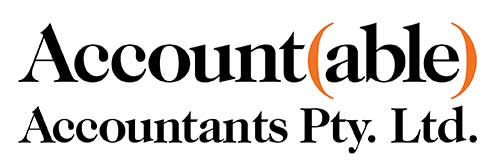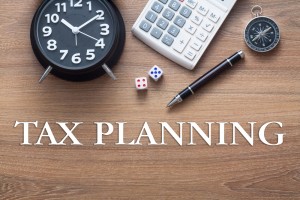2019 Tax Planning
2019 Tax Planning
As we approach the EOFY for 2018, Pat Hoey has put together some Tax Mimimisation Strategies to help save you tax as well as some Tax deferral Tips to delay paying tax from 2019-2019.
Tax Minimisation strategies – to save you tax
Personal Superannuation – if you choose to contribute to super and cash flow allows it, you can claim a deduction for personal superannuation contributions (either via your business entity or if via your personal name). A key point to remember is that the super contribution must be received by the super fund by 30 June (so make sure you transfer the funds a good few days beforehand).
Super Contribution caps – the 2019 super tax deductible contribution cap is $25,000. If paying a super lump sum before 30 June, don’t forget any wages super guarantee that may have already been paid on your behalf by any employers you work for outside your business, that have made up part of your super limits.
| Super caps | 2018-19 | 2019-20 |
| General Concessional Cap | $25,000 | $25,000 |
|
Non-Concessional Cap |
$100,000* |
$100,000* |
| 3 year Non-Concessional Cap | $300,000* | $300,000* |
*please contact our office if you plan to make any non-concessional contribution, as past contributions and super fund balance may affect this amount.
Different income levels – 2019 v 2020? – is your income levels changing significantly next year? If it goes up or down, you may have the opportunity to bring forward or delay some income or expenses, so they can be more tax effective. As personal tax rates vary at different levels (ie taxable income $37k to $87k has tax at 34.5%; income $87k to $180k has tax at 39%; income over $180k has tax at 47%), moving a tax deduction into a higher earning year, or shifting income to a lower income year, can help save you tax.
Re-structure? – Review your Business Structure – should your business structure be adjusted to help reduce tax via a company or family trust structure? This may help delay tax to later years, or help share profits amongst family members. It may also offer you better asset protection, to safeguard assets like your home in your own name.
Tax Deferral – to delay paying tax from 2019 to 2020.
Defer Invoicing – If your cash flow can allow it, consider deferring your invoicing until after 30 June. A one week delay in billing will mean you pay tax on the income a whole year later. Also consider that a few days delay in billing may mean that you get paid a whole month later.
Employee’s Superannuation – by paying your employees’ superannuation contributions before 30 June will allow employee’s super to be a tax deduction in the 2019 year, instead of the 2020 year if paid in July. Also ensure you have paid each employee’s quarterly super within 28 days of each quarter ending, to avoid the Superannuation Guarantee Charge and loss of a tax deduction in paying super late.
Repairs & Maintenance – are any repairs or maintenance due on equipment, cars or buildings? Why not get it done pre-June rather than just after, so incurring the cost via payment or invoice will allow you the tax deduction by a whole year earlier.
Bring forward other deductions – If your cash flow can allow it, you may want to pre-pay for expenses before 30 June, which may not be due until July or August. I.e. memberships subscriptions, rent, interest (but not the loan reduction), lease payments, insurance, business travel, donations, etc. If you have received the invoice by 30 June, than we can still claim it as a tax deduction, by bringing it in as a creditor.
Incur expenses before 30 June – if you have “incurred” an expense before 30 June, but not yet paid, as long as you receive an invoice dated before 30 June, than this expense can be claimed as a creditor expense in the 2019 year.
Assets up to $30,000 for small business entities – if your assets are pooled for depreciation purposes and you need to replace a business asset (i.e. lap top, work tool or motor vehicle etc.), if the item is under $30,000, consider buying it before 30 June to bring forward the expense into the 2019 year (and therefore the $30,000 can be claimed 100% in the year purchased and not required to be depreciated).
Delaying Capital Gains – please remember that capital gains are based on the contract date, not settlement date – so if you are selling an investment that you have a capital gains profit, consider delaying the contact signing date until after 30 June.
Trusts – before 30 June, a trustee resolution needs to be completed declaring how the split of the trust’s profit will be paid to which beneficiaries. We will make contact with all trusts to discuss this resolution further
2019 Individual Tax Estimates – Total Tax and Medicare payable & Average Tax Rates
| Taxable income | Tax & Medicare Payable | Average Tax & Medicare |
| $60,000 | $12,147 | 20.25% |
| $80,000 | $19,147 | 23.93% |
| $100,000 | $26,632 | 26.63% |
| $120,000 | $34,432 | 28.69% |
| $140,000 | $42,232 | 30.17% |
| $160,000 | $50,032 | 31.27% |
| $180,000 | $57,832 | 32.13% |
| $200,000 | $67,232 | 33.62% |
| $250,000 | $90,732 | 36.30% |
The above tax and medicare rates. It also assumes tax payer has private health insurance.
Other Pre-30 June plans
Super pension – if choosing to take a pension from your super fund, make sure you take out the minimum pension limit. A new law for this year, is that anybody on a Transition to Retirement Pension, your super fund earnings will be taxed at 15% (previously it was changed to 0%, however this benefit is only for Retired Pensions asset earnings)
Xero Record Keeping set up – if you are wanting to use a better record keeping system, Xero have a deal of offering 50% off their monthly subscription for new set ups before 30 June – so talk to us if you have been wanting a better record keeping system
Is a self managed superannuation fund (SMSF) suitable for you? – With a new financial year about to begin, it can be a good opportunity to seek personal advice on whether a SMSF is right for you. As it can open tax planning opportunities with super contributions; pensions; investment opportunities; transition to retirement pensions; actively work with your super towards wealth creation; reduce administration costs on high balance super funds; property opportunities; rollover of debt free investment or property opportunities; etc
Have employees? – if yes, you need to set up Single Touch Payroll for your employee payroll system this year.
For advice and assistance on business, super or investment taxation issues, please don’t hesitate to call us on 5366 1000.
By Pat Hoey

